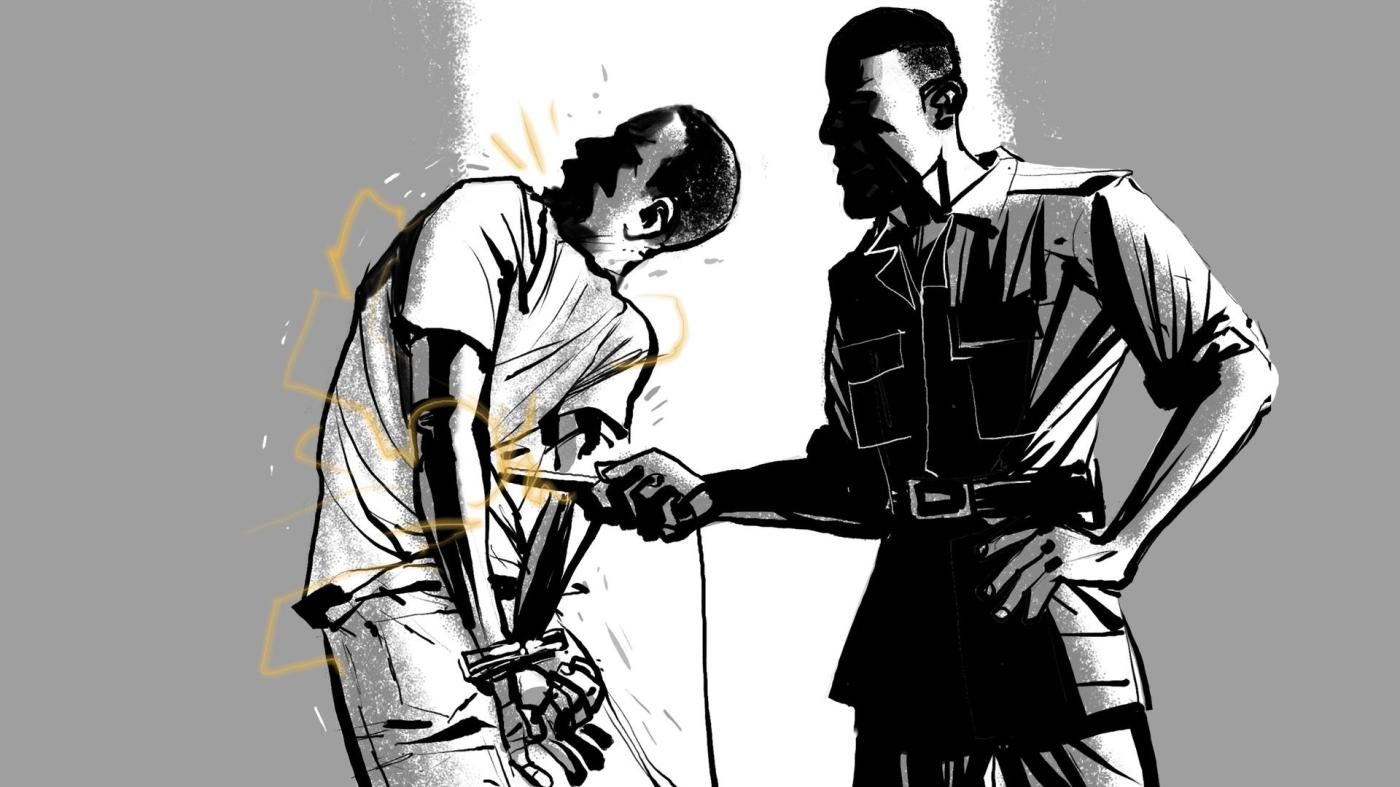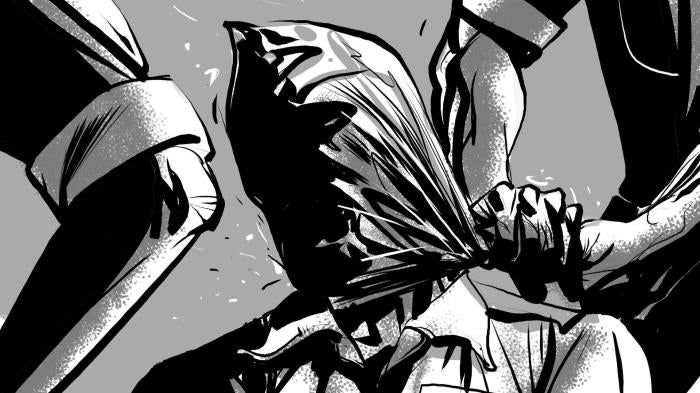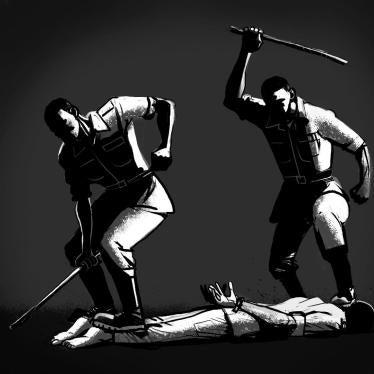Who are the people held by the military and why were they detained?
Most of the detainees were civilians accused of working against the government with armed groups, such as the Democratic Forces for the Liberation of Rwanda (FDLR), a predominantly Rwandan Hutu armed group, some of whose members participated in the 1994 Rwandan genocide. The group operates in neighboring Democratic Republic of Congo, where they have terrorized civilians for many years. Others were accused of collaborating with the Rwanda National Congress (RNC), an exiled opposition group composed mainly of former members of Rwanda’s ruling party.
It was often difficult to say what these detainees were suspected of doing or why they were targeted. Some had received a suspicious phone call from Congo. Others simply knew people who were suspect. Others seemed to have been taken in arbitrary roundups.
How did these people end up in the military camps?
The military arrested many of them at their homes. Others were called with an offer of a job and then were taken away. Many were out on the street and the military forced them into a car. Some family members tried to find their loved ones at military camps, but were told to go away. Most of the detainees in our research were held incommunicado, meaning they were held without contact with family, friends, or legal counsel. Many were held for months on end.
What happened during their detention?
We spoke with 61 people who came out of military detention and no case is the same. However, most were tortured to extract confessions or accusations against others. Soldiers carrying out the torture were brutal. In some cases, men were asphyxiated with plastic bags. In other cases, soldiers used electric shocks and acid or tied objects to men’s testicles. Many victims suffered severe beatings and mock executions. One man’s testimony stuck with me when he described the beatings. He had been held in a camp called the “Gendarmerie” for a month. He described the beatings as almost normal, but at one point he paused and almost broke down in tears. He described how he was beaten with cables. He said, “The cables were the worst.”
We met dozens and dozens of people who were still suffering, both physically and mentally, months or years after their torture ended.
What is the most striking story you came across during your research?
I remember the bravery of one man I spoke to while he was in prison. I used an interpreter, but the prison officials insisted on having a plain clothes officer there with us. When the prisoner told me he had been detained illegally, the plain clothes officer yelled, “He is lying!” He then told the prisoner, in Kinyarwanda, not to say things that would make his life more difficult. So we talked about technical aspects of his trial for about 45 minutes. All the while he was tapping my leg under the table with his foot. At one point, the officer received a call and walked outside for about 25 seconds. The prisoner turned to me and said, “We don’t have much time. You must know that I was tortured at Kami. I did not do the things they say I did. My confession was based on torture. Please let the world know.” He took a real risk to say that to me. He is still in prison.
On what legal grounds were people arrested?
The military can certainly detain someone they suspect may be committing crimes against state security. But in the cases we documented, the military did not bring the suspects to the police – where the defendant can be made aware of their rights or can seek legal counsel – but they were instead detained at military camps, which are not recognized as official detention centers in Rwanda. This violated Rwandan and international law.
At what point were people released? Who made these decisions?
There are three possible outcomes: you could be transferred to the civilian courts, you are just let go, or you are never released.
In most of the cases we documented, the people were eventually transferred to civilian courts. What is striking is that they would be taken from a military camp to a police barracks, often after several months, but the police would register their arrest date as the day they arrived at the police station. Thus, months of unlawful detention can be simply erased from the official record. When the accused brought this up in court, the judges and prosecutors dismissed allegations of torture and unlawful detention, even though they should have looked into it.
Some groups of people were just released from the military camps and told to go home. Apparently, the torture had not extracted the confessions or accusations the military intelligence officials were seeking. These people were warned, often with death or re-arrest, not to talk to anyone about where they had been and what had happened to them. They took great risks in talking to us and exposing this abuse.
Some people are still in military detention, or never made it out. We heard numerous cases of deaths of detainees, but this is almost impossible to verify.
It is difficult to establish the chain of command in these camps. However, we name several officers and soldiers based on witness testimony.
What was your experience doing this research?
Carrying out this research was a real challenge over the years. I had to meet with victims, two, three, even four times before they felt comfortable talking about what had happened to them. Talking about these things puts their lives in very real danger.
I was also struck by how basic principles of the rule of law are disregarded in Rwanda when it comes to these cases. In many instances soldiers arrested someone in front of their family and neighbors. Some family members were brave enough to follow up with local authorities as to their loved ones’ whereabouts, but were met with a shrug of the shoulders. In court, judges and prosecutors dismissed allegations that detainees had been unlawfully held or tortured. We never saw one judge take these statements made in court seriously.
People know this type of detention and torture happens in Rwanda, they are just too scared to talk about it openly. The best they can do is hope it doesn’t happen to them.
What should the government of Rwanda do about these cases of torture? And how have they responded to your research?
We have been sharing details of our research with the government for almost a year, since December 2016. We have asked for meetings to discuss this research and offer ideas as to how the government could investigate these allegations and hold those responsible to account. But the government has never responded.
In July, we released a report about extrajudicial executions of petty criminals in western Rwanda. The government was quick to call the report “fake news” and did nothing to respond to the specific allegations, even though we listed names of victims, dates and locations of the executions, and included many photos of the victims.
We took years to conduct difficult research to demonstrate that unlawful detention and torture is used systematically in Rwanda against perceived “enemies.” Calling these allegations “fake” will not diminish their veracity.
What is most important is that the government should make a serious effort to respond to these allegations, including holding the people responsible to account. It should work closely with UN bodies, such as the Subcommittee on the Prevention of Torture and the Committee Against Torture, to stop this scourge.
If the government does not take this issue seriously, Rwanda’s donors should evaluate financial and other support, including training and capacity-building, to institutions directly involved in these violations.
This interview has been edited and condensed.






